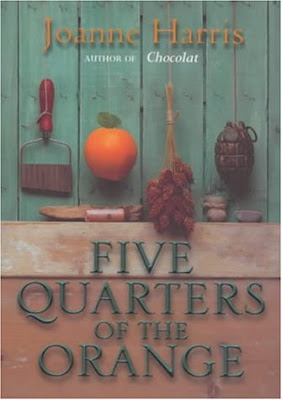Tokarczuk, Olga "Drive Your Plow Over the Bones of the Dead" (Polish: Prowadź swój pług przez kości umarłych) - 2009
I have read one book by Olga Tokarczuk (Primeval and Other Times) when she received her Nobel Prize for Literature. And I wanted to read more by her since then. A bookclub member lent me one now and I read it in more or less one go, it is so exciting. Janina Duszejko is such an interesting character. And the story is starting so quietly, you don't even notice at the beginning that it is a crime story which are not my favourites.
Even though she is the protagonist of the novel, you don't see her as such at the beginning. Janina is a middle-aged, slightly weird woman living in the middle of nowhere in the mountains at the Polish-Czech border where she looks after the summer houses of some rich people. She works with astrology and translates poems by William Blake. She loves animals and she is a conservationist. A remarquable woman.
Where this story leads to, I don't know. But I recommend this book to anyone who is interested in great literature.
From the back cover:
"One of Poland's most imaginative and lyrical writers, Olga Tokarczuk presents us with a detective story with a twist in DRIVE YOUR PLOW OVER THE BONES OF THE DEAD. After her two dogs go missing and members of the local hunting club are found murdered, teacher and animal rights activist Janina Duszejko becomes involved in the ensuing investigation. Part magic realism, part detective story, DRIVE YOUR PLOW OVER THE BONES OF THE DEAD is suspenseful and entertaining reimagining of the genre interwoven with poignant and insightful commentaries on our perceptions of madness, marginalised people and animal rights."
And why the German translation is called "Der Gesang der Fledermäuse" (The Song of the Bats) is still a mystery to me.
Olka Tokarczuk received the Nobel Prize for Literature in 2018 "for her narrative imagination that with encyclopedic passion represents the crossing of boundaries as a form of life".
I contribute to this page: Read the Nobels and you can find all my blogs about Nobel Prize winning authors and their books here.
























